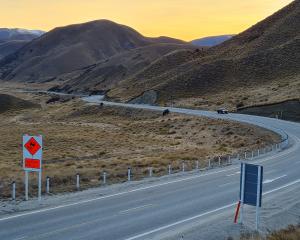
Three wetlands are being developed above the 4ha landfill as part of the polytech's responsibilities to monitor and manage the land it bought from Contact Energy five years ago.
The landfill was transferred to the area when the Clyde Dam was built to prevent contaminants leaching into nearby waterways.
A nine-hole golf course was established on the site, which the polytech uses for its turf management course and students were now also able to use its wetland initiative for their studies in horticulture.

Liquid waste will be pumped, using solar power, from the landfill into the wetlands, where the plants will metabolise some of the leachates, and water will evaporate from the ponds.
As part of the project, Cromwell's horticulture students will propagate riparian species in the student nursery as part of the ongoing management of the wetlands.
Otago Polytechnic special projects manager Rebecca Hamid hoped that over the next three to four years the project would "get rid of leachates by evaporation".
"This is a sustainable approach. We are managing our own leachates and aren't taking them off the property."
Otago Polytechnic Cromwell campus manager Kelly Gay said it took "considerable" research and planning to arrive at the "artificial" wetlands as a solution to dealing with the excess leachates.
"However, we are very pleased and also very proud that it is an ethically sustainable solution... Dealing with these wetlands means we don't export our problem somewhere else."












